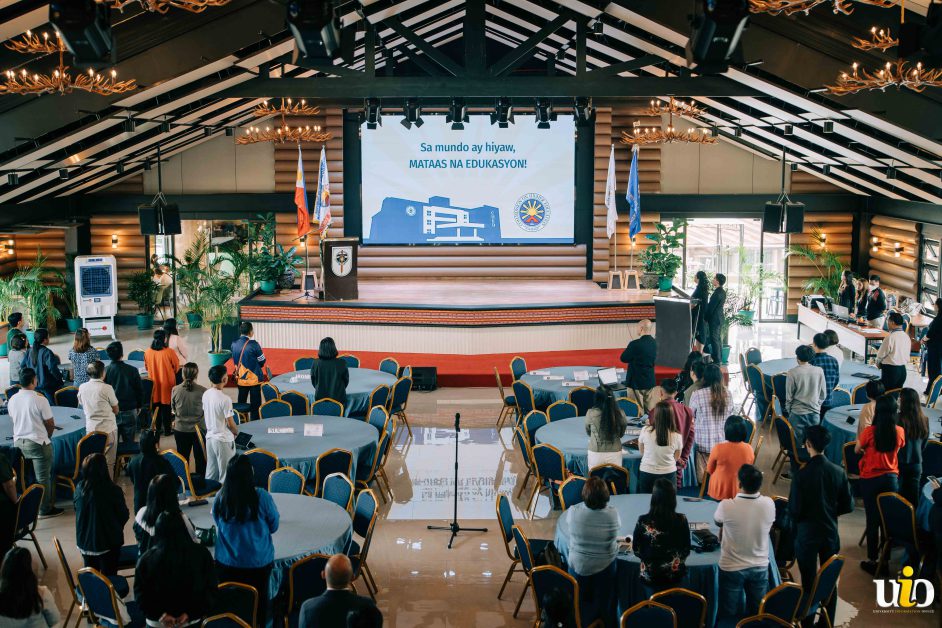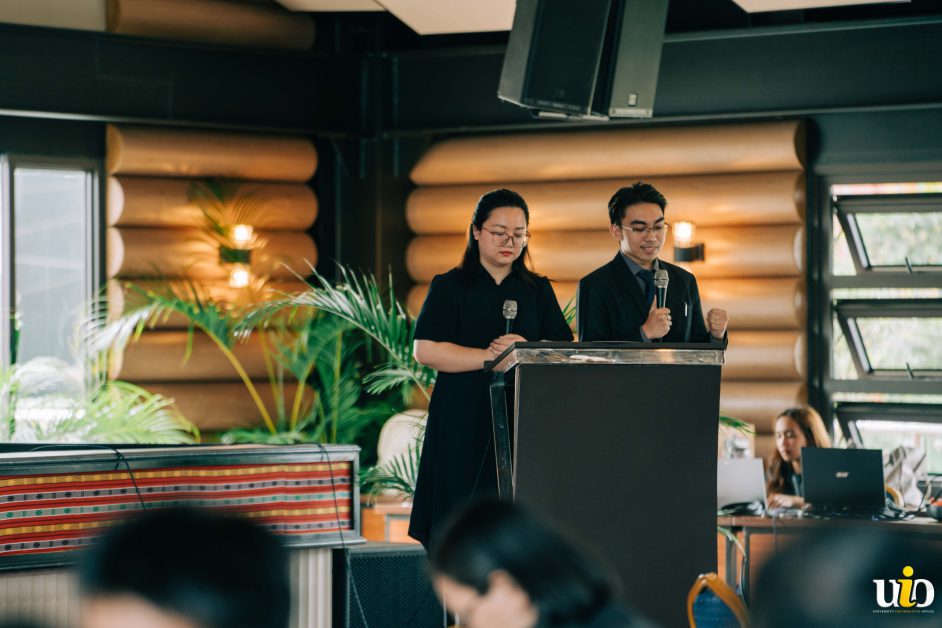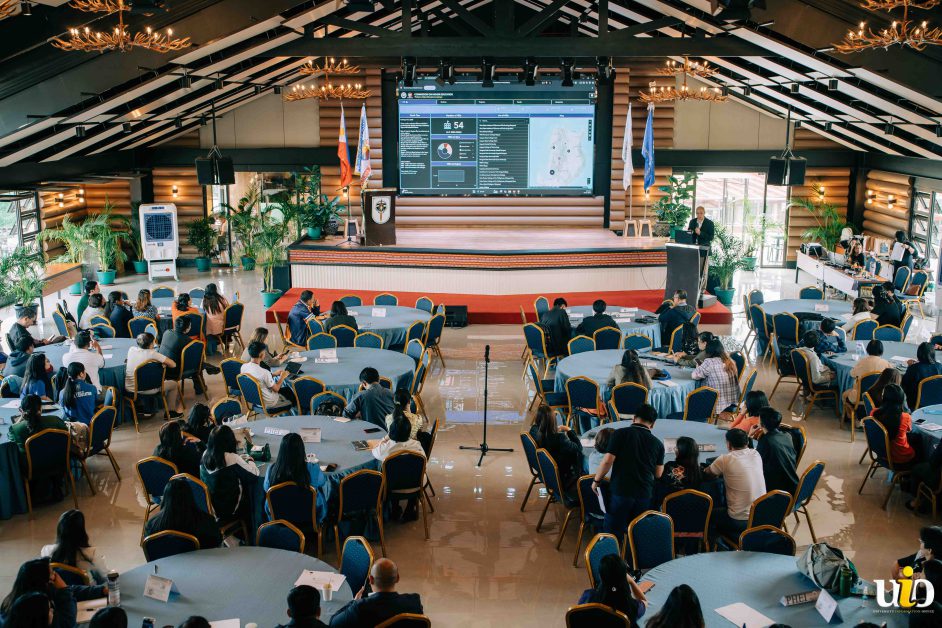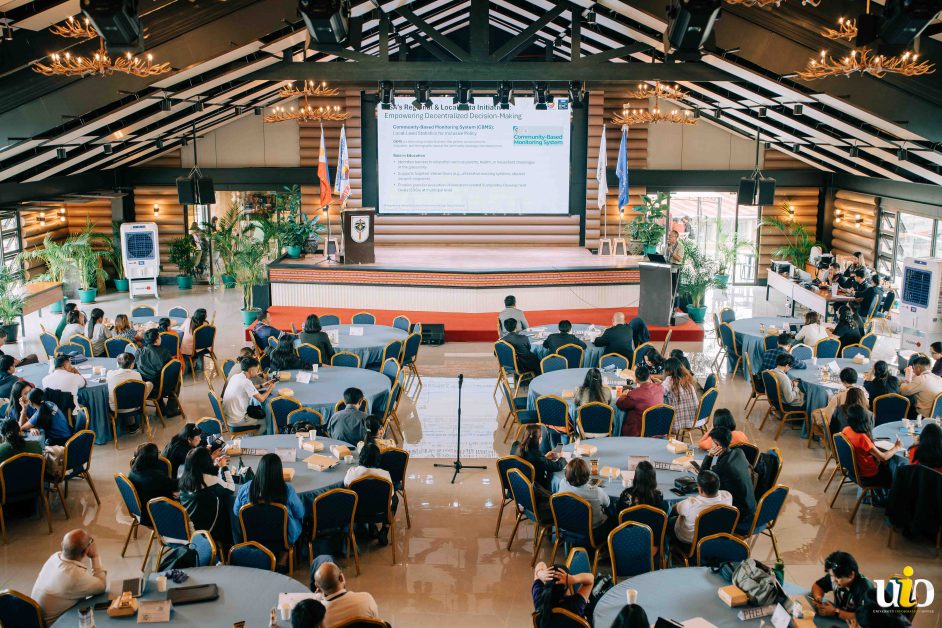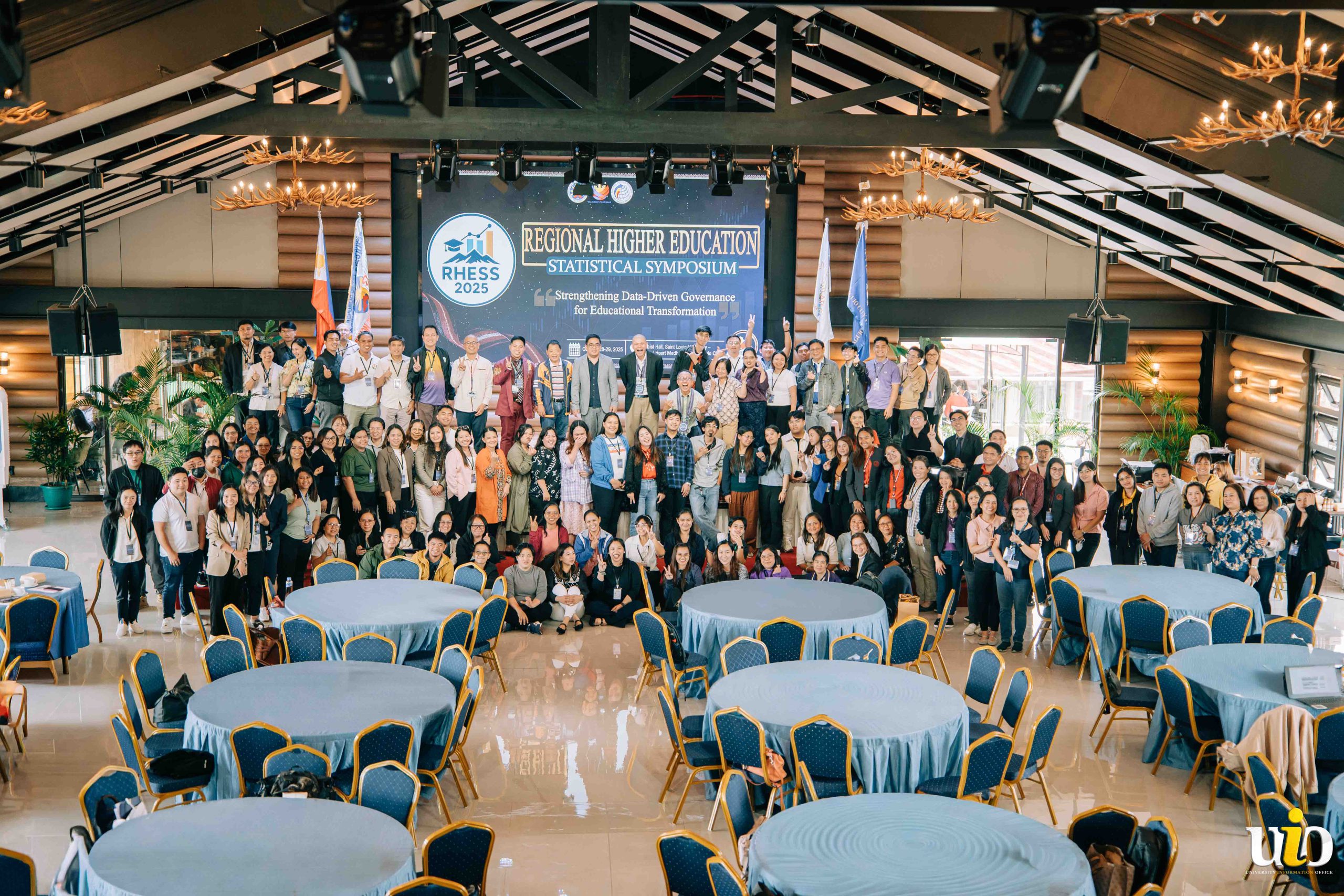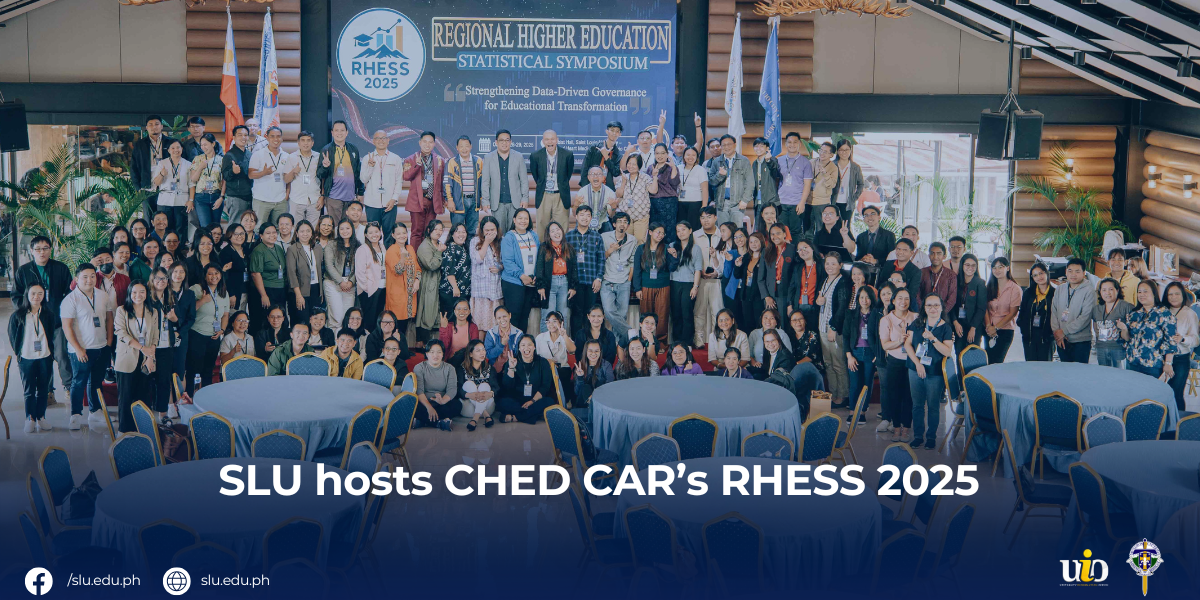Saint Louis University (SLU) as a catalyst for transformative education hosts the first ever Regional Higher Education Statistical Symposium (RHESS) of the Commission on Higher Education Cordillera Administrative Region (CHED-CAR) from 28 to 29 October 2025 at the Fr. Theophile Verbist Hall, SLU Sacred Heart Medical Center. The symposium gathered various groups including state universities, private higher education institutions, LGUs, and student leaders.
The event began with a welcome message delivered by the SLU President Rev. Fr. Gilbert B. Sales, CICM, PhD, who remarked, “This symposium is deemed as a perfect opportunity for higher education representatives to engage in dialogue and collaboration– promoting the strategic use of data and statistics to advance responsive, accountable, and evidence-based higher education governance.”
Moreover, Fr. Sales emphasized the event’s contributions in combating challenges in data governance which included the lack of tailored policies, standardized metrics, and technical training. He affirmed how the contribution of every participant through shared commitment and collaboration can harness change and development, “I am confident that we can craft context-specific policies and frameworks that will enhance data-driven governance in our sector.” he concluded.

Shortly after was a keynote address from the CHED-CAR Executive Director IV, Atty. Cinderella Filipina S. Benitez-Jaro. She stated, “This symposium reminds us of a vital truth: statistics are not just numbers; they are stories of people, progress, and possibilities. They are not mere counts, but powerful indicators of growth, equity, and opportunity, guiding our collective efforts toward a more inclusive evidence-based, and transformative higher education landscape.”
Atty. Benitez-Jaro explained how the analysis of trends in enrollment, completion, and employability move beyond collection toward purposeful action, adding on the importance of effectively used data becoming a catalyst for innovation, accountability, and progress. She further grounded CHED’s ACHIEVE Agenda, “At the heart of these efforts lies CHED’s ACHIEVE Agenda, our guiding blueprint that calls us to ensure access to quality education for all; Equity that uplifts the marginalized and underserved communities; Quality that sustains academic excellence, Relevance that connects learning with life and livelihood; Resilience that equips our institutions to adapt to change — all achieved through innovation, Efficiency and Vitality.”
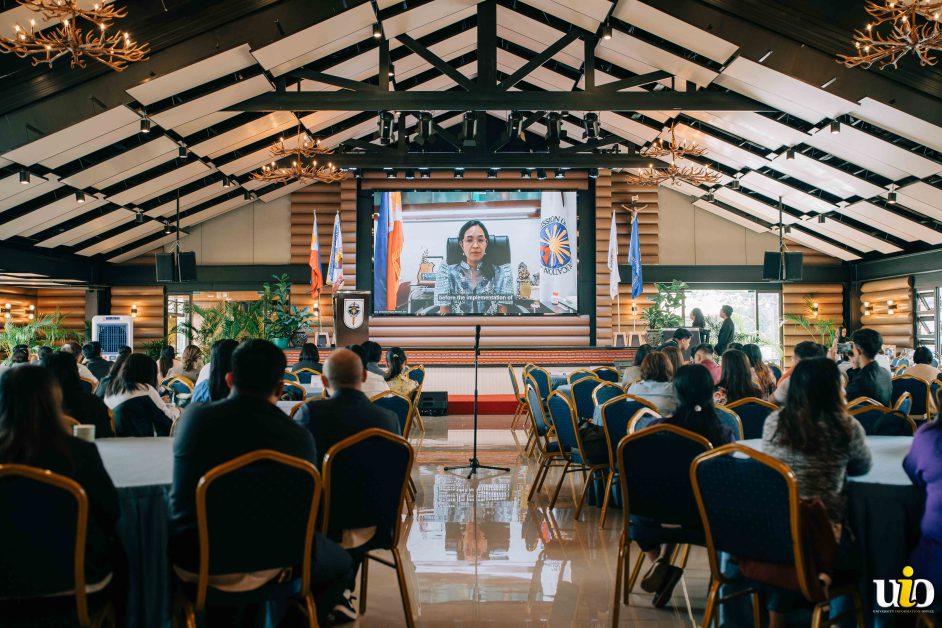
The RHESS 2025 serves as a regional platform for operationalizing CHED’s ACHIEVE Agenda through data-driven governance. Atty. Benitez-Jaro later on ended her keynote by stating, “May this symposium inspire us to transform data into dialogue, dialogue into policy, and policy into lasting progress.”
Following the messages, was the start of plenary session 1: “CHED by the Numbers: National Insights Driving Regional Transformation” with CHED Chief of Knowledge Management Division OPRKM, Mr. Cyrus Paolo M. Buenafe. He opened, “In CHED, we actually have, at least in my division, we have what is known as four subjects of analysis namely: institution, students, programs, and faculty.” His discussion emphasized the need for precise, real-time data in higher education to avoid questionable numbers and ensure effective support in connection to initiatives that are underway to gather deeper, student-level information, moving beyond flat enrollment lists to data-rich profiles. In addition, he spoke on how AI is a good starting point for trend analysis in a particular region, comparing the system of the past when initial research required extensive manual scanning of newspapers and writings. He elaborates the benefits of how AI helps validate trends and provides a foundation for discussion.
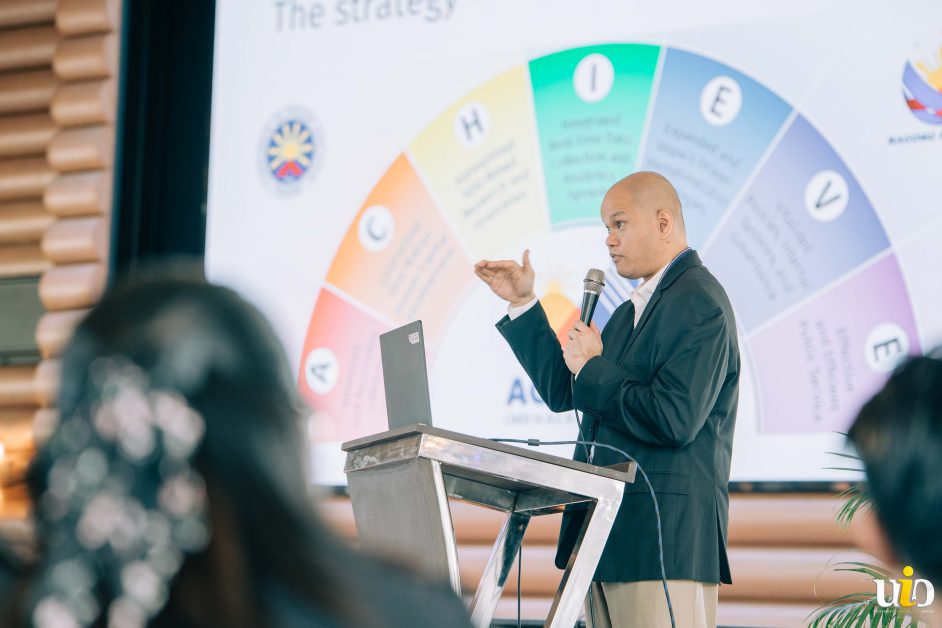
CHED-CAR Regional Director, Jimmy G. Catanes, PhD, CESE gave his keynote address expressing gratitude to the representatives and collaborators present, “Your presence and contributions, their speakers and participants, truly enrich the RHESS 2025 and exemplify the spirit of inter-agency collaboration that this event hopes to sustain… By bringing together CHED, Philippine Statistics Authority (PSA), Department of Labor and Employment (DOLE), the Local Government Units (LGUs), and the higher education institutions, we create an environment where challenges are discussed openly and solutions are developed collaboratively,” he greeted.

PSA-CAR Chief Statistical Specialist, Mr. Aldrin Federico L. Bahit Jr. was the speaker for session 2 titled “Strengthening Higher Education Governance through Data Utilization: The Pivotal Role of the Philippine Statistical Authority.” Mr. Bahit discussed the results of the 2024 Functional Literacy Education and Mass Media Survey, focusing on basic and functional literacy rates in the Cordillera region. Mr. Bahit explained the discrepancies in basic and functional literacy rates across regions were presented and the PSA’s role in maintaining statistical standards and key features of statistical classification systems, such as hierarchy and harmonization along with their importance for policy-making and data interoperability.
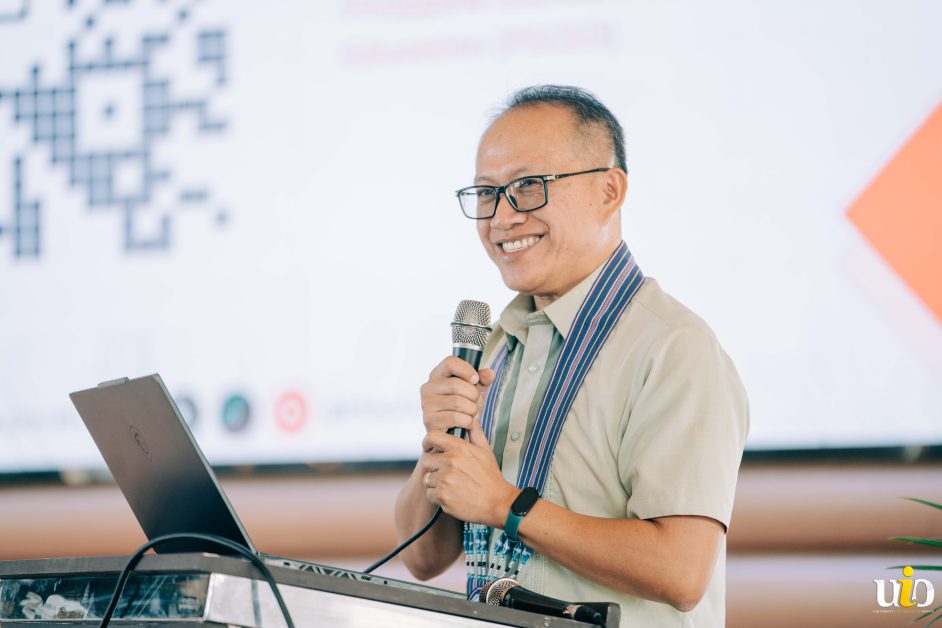
The following afternoon plenary sessions were led by different representatives across institutions and offices:
- Session 3: “JobsFit 2025: Advancing Employability Through Data-Driven Workforce Planning” by Mr. Froilan R. Flores, Labor and Employment Officer III, Department of Labor and Employment – CAR
- Session 4: “From Data to Policy: Understanding IP Participation and Attrition in the Cordillera” by Mr. Andrew S. Macalma, Ph.D., University Registrar, Saint Louis University
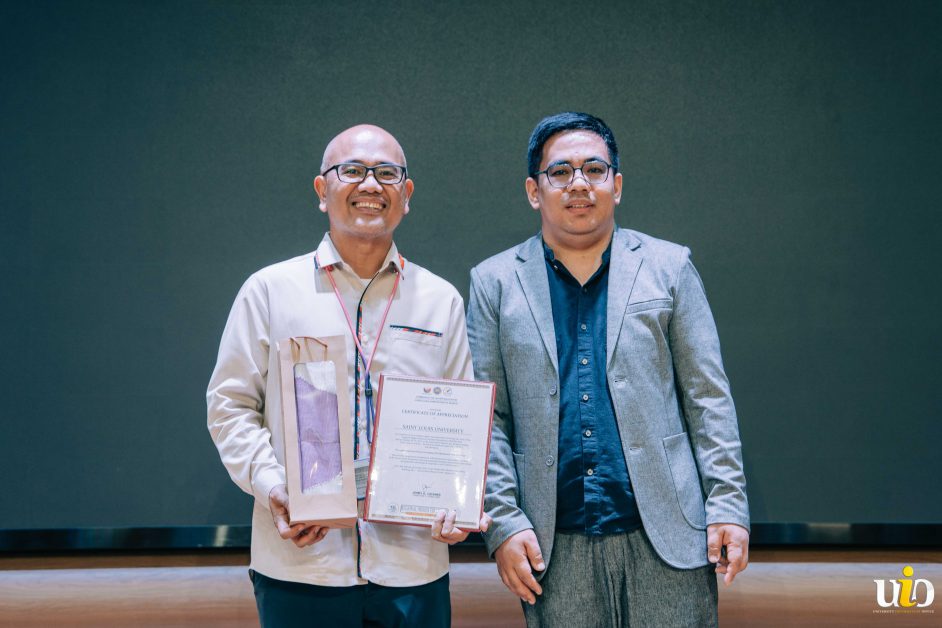
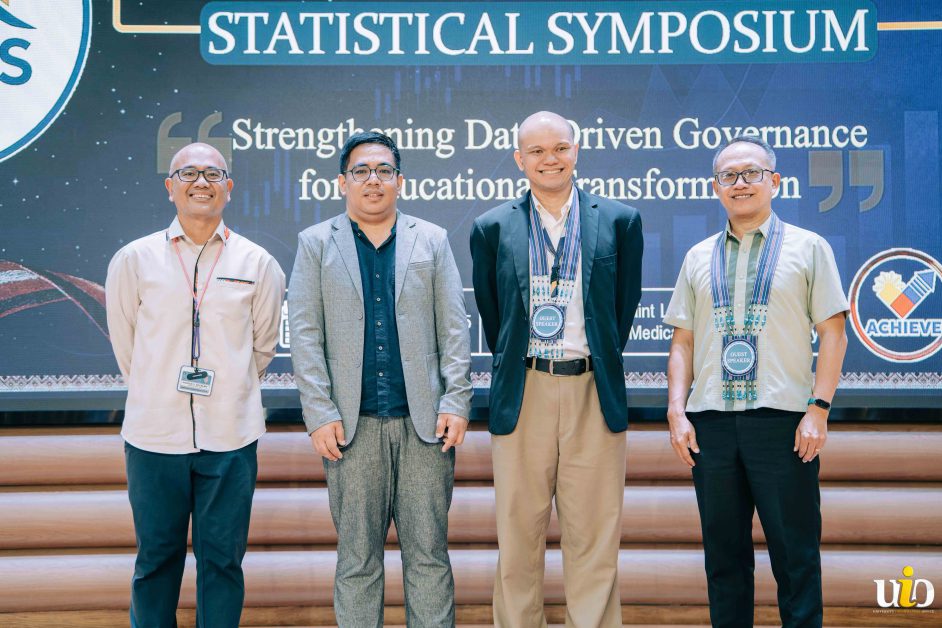
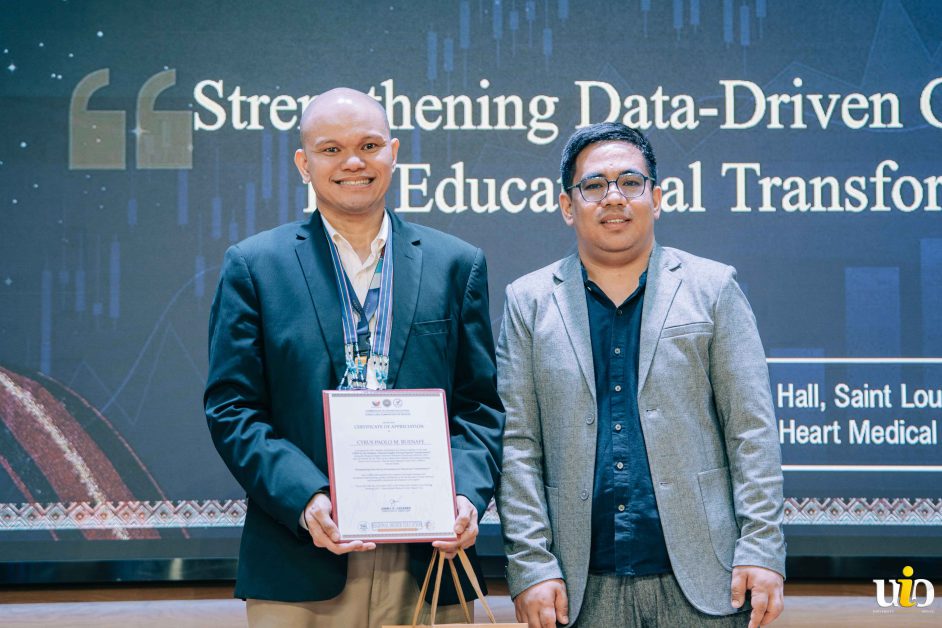
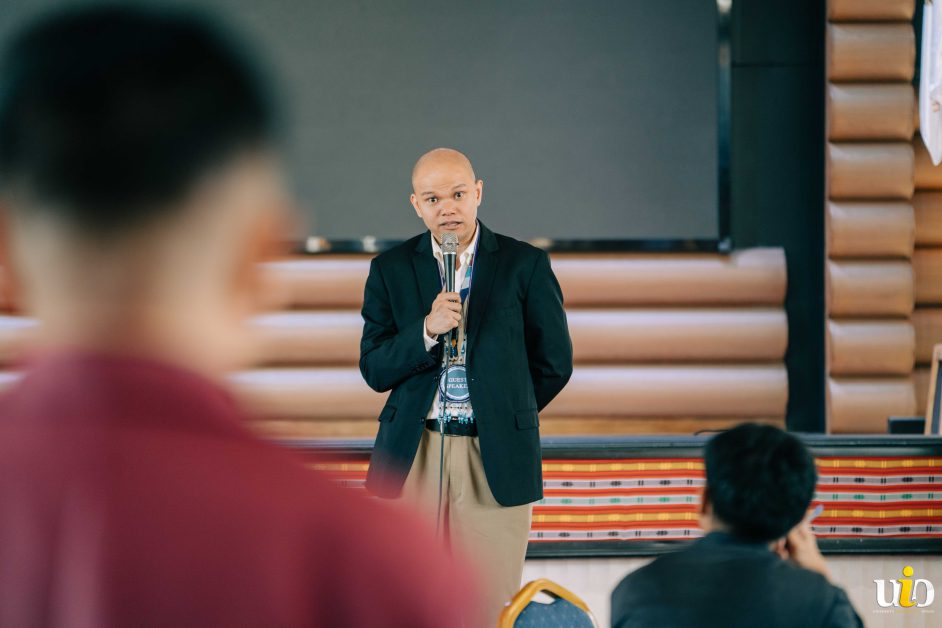
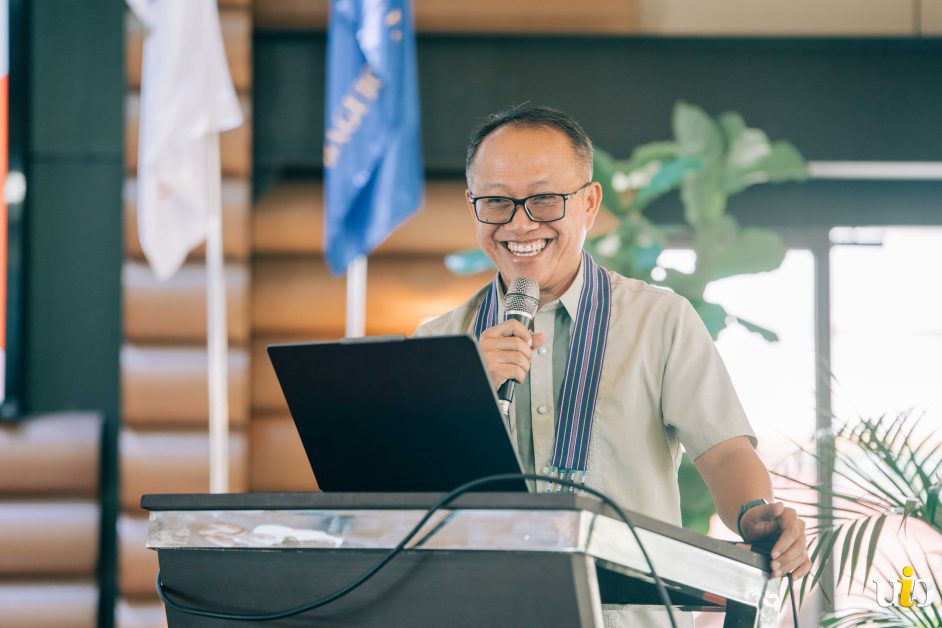
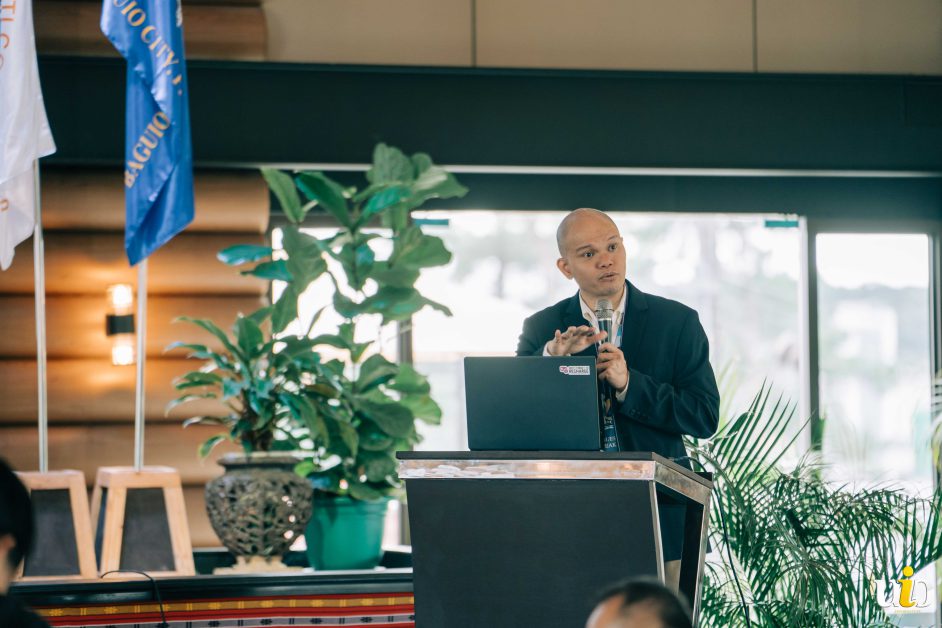
Day 2 of the RHESS will be conducted on 29 October 2025, from 8:00 am-2:00 pm with an interactive session, the official launching of CHED-CAR SDG Center and Re-launching YABONG, and a group reporting and plenary discussion.
RHESS 2025 manifests an elevated urge for collaboration and transformative education aligning with the United Nation’s Sustainable Development Goals (UN SDGs) namely: SDG 4 Quality Education, SDG 8 Decent Work and Economic Growth, and SDG 17 Partnerships for the Goals. (Article by: Catherine Rose Bondoc, UIO Intern | Photos by: Clark Justin Alenso, UIO Intern)
